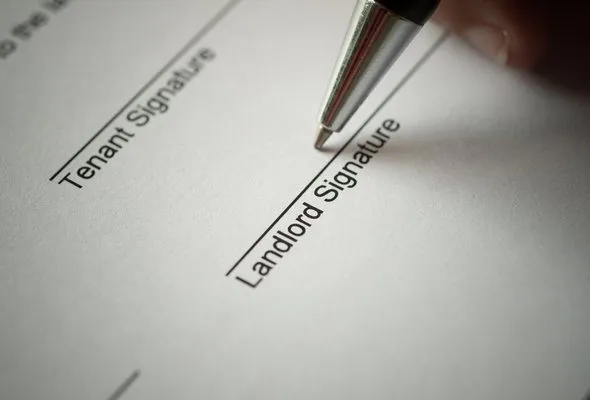If you own an investment property and collect rent from your tenants, that rental income will be part of your taxes. You can, however, deduct expenses you incur to maintain your rental property. In other words, becoming a landlord for the first time will make filing your taxes more complex but there are tax advantages that can save your money.
A financial advisor can advise you on the best tax strategy for your real estate and other investments.
Taxes on Rental Income: What to Declare
The rental income you declare on your income taxes will depend on your method of accounting. Most individuals use the “cash basis method.” This method requires you to report income as you receive it and expenses as you pay them out. But some businesses use the “accrual” method of accounting. This counts income when it’s earned, not when it’s received.
If you’re just a private citizen with a rental property, you’ll probably use the cash basis method. That means you’ll count rent money that you receive as income in the relevant tax year. The IRS also says that you can also include advance rent, which the agency defines as any amount that you collect from a tenant before the period that it covers when using this method. So, if you sign a two-year lease with a tenant, and you get the first-year rent payments with some payments for the following year, then you would report all of these payments as rental income in the tax year that you received them.
You may also be able to count the security deposit that your tenant provides. You can do so if you use the security deposit as a final rent payment or you take all or part of it as compensation for damage done by tenants. But if you take a security deposit intending to return that deposit when the tenant leaves, don’t count the deposit as income.
When a tenant makes an in-kind payment, you can also report it as taxable income according to the number of months it covers. For example, let’s say you agree with a tenant to accept a good or service from them in exchange for one month’s rent. In the eyes of the IRS, you have still received a month’s rent. This means you’ll need to report that month’s rent as income when you file your taxes.
There are some other forms of rental income landlords should report. For example, if a tenant pays you to get out of a lease, that payment counts as rental income for tax purposes. You’ll need to report that payment in the year you receive it, no matter your method of accounting. If your tenant pays any building expenses not required per the lease terms, those payments also count as income. It will also count as income if a tenant pays for a repair or utility not required in the lease and then deducts that payment from his or her rent payment.
What You Can Deduct to Reduce Your Tax Liability

It might sound like being a landlord and collecting rent is a big tax headache. But remember that you can also deduct expenses to shrink your tax liability. You can deduct costs like the mortgage interest on your rental property, property taxes, operating expenses, repairs and depreciation.
The IRS uses the standard of “ordinary and necessary expenses” to determine what you can deduct. Ordinary expenses are no-brainers expenses that generally come with owning a rental property. This includes the payments you make to a management company or superintendent. Necessary expenses can include costs like advertising vacancies or covering maintenance expenses, utilities and insurance. You can also deduct the cost of materials, supplies, and repairs made to maintain your building.
What you can’t deduct, however, is money you spend to improve, renovate or remodel your property. While normal maintenance counts, if you decide you want to make your rental property much fancier or turn a one-bedroom unit into a two-bedroom unit, you can’t deduct those kinds of discretionary expenses.
You can deduct depreciation of your property and its features like appliances. If you make improvements, you can recoup some of the money you spend when you file new depreciation paperwork. To do so, you’ll use IRS Form 4562.
How to Report Taxes on Rental Income
To report your rental income, you’ll use Form 1040 and attach Schedule E: Supplemental Income and Loss. On Schedule E, you’ll list your total income, expenses and depreciation for each rental property. Expenses include advertising, auto and travel, insurance, repairs, taxes, and more. Again, you’ll need Form 4562 to correctly fill in the amount of depreciation on line 18 “Depreciation expense or depletion.”
A single Schedule E form allows you to report on three properties. If you have more than three, you can file additional Schedule E forms to list your other properties on Lines 1 and 2. However, you will only fill in the “Totals” column on one Schedule E form. These totals will be the combined totals of all the Schedules E you file.
To ensure you provide the IRS with the correct information, you’ll want to keep records of your property management transactions. This includes rent checks, financial statements, receipts, deductible expenses and more. If you can’t provide the correct paperwork and information, you may not be able to deduct as much as you’d like. Even worse, you could face additional taxes and penalties.
Passive Activity Loss Rules and Income Limits
Rental income is generally treated as a passive activity for income tax purposes, which affects how losses can be used. While rental properties may generate deductible expenses that exceed rental income, those losses are not always allowed to offset other types of income, such as wages or business earnings.
The IRS provides a limited exception for certain landlords who actively participate in managing their rental property. Under this rule, eligible taxpayers may be able to deduct up to $25,000 in rental losses against non-passive income, depending on their filing status and level of involvement. 1 This allowance is subject to income limits and begins to phase out as adjusted gross income increases.
Income thresholds play a central role in determining whether rental losses can be deducted in the current year. As income rises above the phaseout range, the amount of allowable loss is reduced and may eventually be eliminated. Any disallowed losses are not lost, but instead carried forward to future tax years.
Carried-forward passive losses can be used in later years when rental income increases or when the property is sold. At that point, suspended losses may offset rental income or, in some cases, other income, which can affect the overall tax outcome of owning and eventually disposing of a rental property.
Bottom Line

Owning an investment property can be a great way to boost your financial security and work toward financial independence. It comes with responsibilities though, from hiring a superintendent to making necessary repairs. You’ll have to stay on top of your taxes for the rental property, too. With all the forms and paperwork, it might be a good idea to hire a tax professional to help, especially if it’s your first tax season as a landlord.
Tips for Filing Your Taxes
- A financial advisor can potentially help you manage your rental income and answer other tax questions. Finding a financial advisor doesn’t have to be hard. SmartAsset’s free tool matches you with vetted financial advisors who serve your area, and you can have a free introductory call with your advisor matches to decide which one you feel is right for you. If you’re ready to find an advisor who can help you achieve your financial goals, get started now.
- Filing your taxes can be a tricky business. If you find yourself confused or overwhelmed, as could be the case if you’re a landlord, you could use tax software. This will help you get your calculations and taxes in order, without the hassle.
- If you find yourself consistently receiving a large tax refund, there is a way you can get that money during the year instead of in one check. You can do this by adjusting the amount withheld from each paycheck.
Photo credit: ©iStock.com/Weekend Images Inc., ©iStock.com/TanawatPontchour, ©iStock.com/loops7
Article Sources
All articles are reviewed and updated by SmartAsset’s fact-checkers for accuracy. Visit our Editorial Policy for more details on our overall journalistic standards.
- “Instructions for Form 8582 (2025) | Internal Revenue Service.” Home, 1 Jan. 2025, https://www.irs.gov/instructions/i8582.
